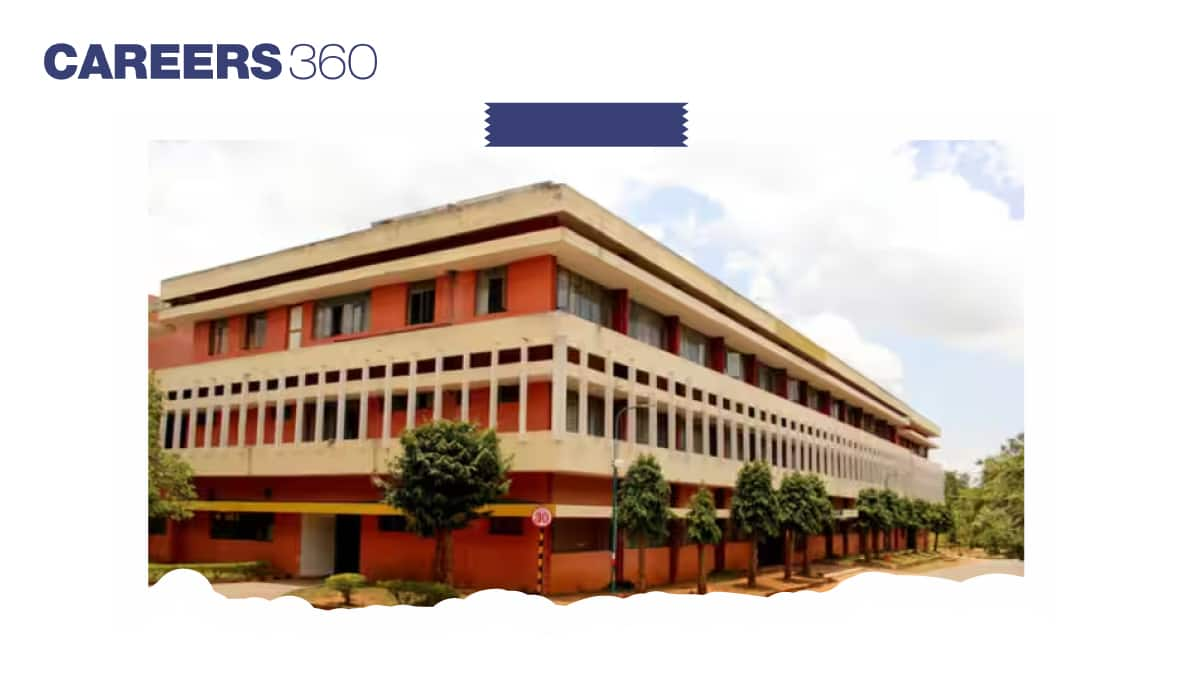JSS Science and Technology University Mysore Admissions 2025 Open; See Here
JSS Science and Technology University (JSS STU) Mysore has started accepting applications for admissions to its undergraduate B.Tech courses. JSS STU Mysore courses are offered in domains like Civil, Mechanical, Computer Science, Electronics and Communication, Biotechnology, and others. Eligible candidates can start applying in the online or offline mode for admissions at JSS STU Mysore. Candidates need not pay any application fee for JSS STU Mysore admissions. Application, result and any other important dates will be decided as per the Karnataka Examination Authority Calendar.
This Story also Contains
- JSS Science and Technology University Eligibility Criteria 2025
- JSS Science and Technology University Mysore Online Application Process
- JSS Science and Technology University Mysore Contact Us
- About JSS Science and Technology University

JSS Science and Technology University Eligibility Criteria 2025
Programmes | Eligiblity |
|---|---|
B.E Biotechnology | Students who have passed PUC / 10+2 examination with Physics and Mathematics as compulsory subjects along with one of the subjects Chemistry / Biotechnology / Biology, with at least 45% of marks (40% in case of candidates belonging to reserved category) in the above subjects. |
B.E Civil Engineering | |
B.E Construction Technology and Management | |
B.E Computer Science and Engineering | |
B.E Electronics and Communication Engineering | |
B.E Information Science and Engineering | |
B.E Mechanical Engineering | |
B.E Computer Science and Business Systems | |
B E Computer Science and Engineering (AI&ML) | |
B E Computer Science and Technology |
JSS Science and Technology University Mysore Online Application Process
Step 1: Visit the official website: jssatem.azurewebsites.net/Apps/Admissions/admissions-home.aspx.
Step 2: Candidates will have to register on the website.
Step 3: After logging in, they need to start the application to the programme they wish to enrol on.
Step 4: After filling in the basic details, candidates need to submit their academic documents and the entrance exam documents to proceed further.
What is the JSS STU Mysore Selection Process 2025?
JSS Science and Technology University Mysore offers admissions based on merit and entrance exams. The basic eligibility is to qualify for 10+2 along with entrance exams like KCET/ COMED-K/ JEE. Students have diverse options in Engineering and Technology before applying to JSS STU admissions.
JSS Science and Technology University Mysore Contact Us
Address: JSS Science and Technology University, JSS TI Campus, Mysuru 570 006, Karnataka, India
Admission team contact number: Mobile: +91 81059-51820, Phone: 0821-2548307
About JSS Science and Technology University
JSS Mahavidyapeetha established JSS Science and Technology University in 2016. JSS STU is a private university and courses are approved and recognised by the AICTE and UGC. According to recent JSS STU placements, the highest package offered was Rs. 56 Lakhs.
Facilities include sports, a library, hostels for both boys and girls, labs, an auditorium, and a seminar hall for conducting seminars, conferences, meetings, and more. These JSS STU facilities can be availed by both the students and faculty.
List of Related colleges
Questions related to JSS Science and Technology University, Mysuru
On Question asked by student community
Hello
I hope you are doing well. As per your mentioned query , if we compare the EC course in both BMSCE and SJCE then you should consider BMSCE because based on reputation amd resources BMSCE is the good option. Apart from this your choice is also depends on your
Dear Student,
The cutoff for B.Tech Biotechnology at SJCE (JSS Science and Technology University, Mysore) for BC/OBC category through KCET is usually around 6,000 to 9,500 rank . If your KCET rank is within this range, you have a good chance of getting a seat. The exact cutoff changes every
Hi,
SJCE in Mysuru is a reputed institution, and management quota seats are priced differently from government quota seats. While the fee changes every academic year, management quota for Mechanical Engineering generally ranges from 2.5–4 lakh per year as tuition, with additional fees for hostel, lab usage, and university charges.
Hey there! I'm glad you reached out. I'd be happy to help clear up any confusion about these colleges:
JSS College of Engineering and SJCE (Sri Jayachamarajendra College of Engineering) are actually two different institutions, even though their names sound pretty similar.
JSS College of Engineering is in Mysuru, Karnataka.
Dear student,
JSS college Mysore is a private university which was graded B++ by NAAC. You can read more about JSS college on our article here-
The cutoffs of Jss college,mysore for the year 2021 are as follows-
BE technology- 40139
BE Civil engineering- 44011
BE Computer science and
Applications for Admissions are open.
Among top 100 Universities Globally in the Times Higher Education (THE) Interdisciplinary Science Rankings 2026
Amrita University B.Tech 2026
ApplyRecognized as Institute of Eminence by Govt. of India | NAAC ‘A++’ Grade | Upto 75% Scholarships | Application Deadline: 15th Jan
Amity University-Noida M.Tech Admissions 2026
ApplyAmong top 100 Universities Globally in the Times Higher Education (THE) Interdisciplinary Science Rankings 2026
SRM University A.P UG Admissions 2026
ApplyUG Admissions Open 2026 | Highest CTC 52 LPA | Average CTC 9.09 LPA | 60+ Collaborations with the world's best Universities
Chandigarh University Admissions 2026
ApplyNAAC A+ Accredited | Among top 2% Universities Globally (QS World University Rankings 2026)
UPES M.Tech Admissions 2026
ApplyLast Date to Apply: 25th Feb | Ranked #45 Among Universities in India by NIRF | 1950+ Students Placed 91% Placement, 800+ Recruiters
